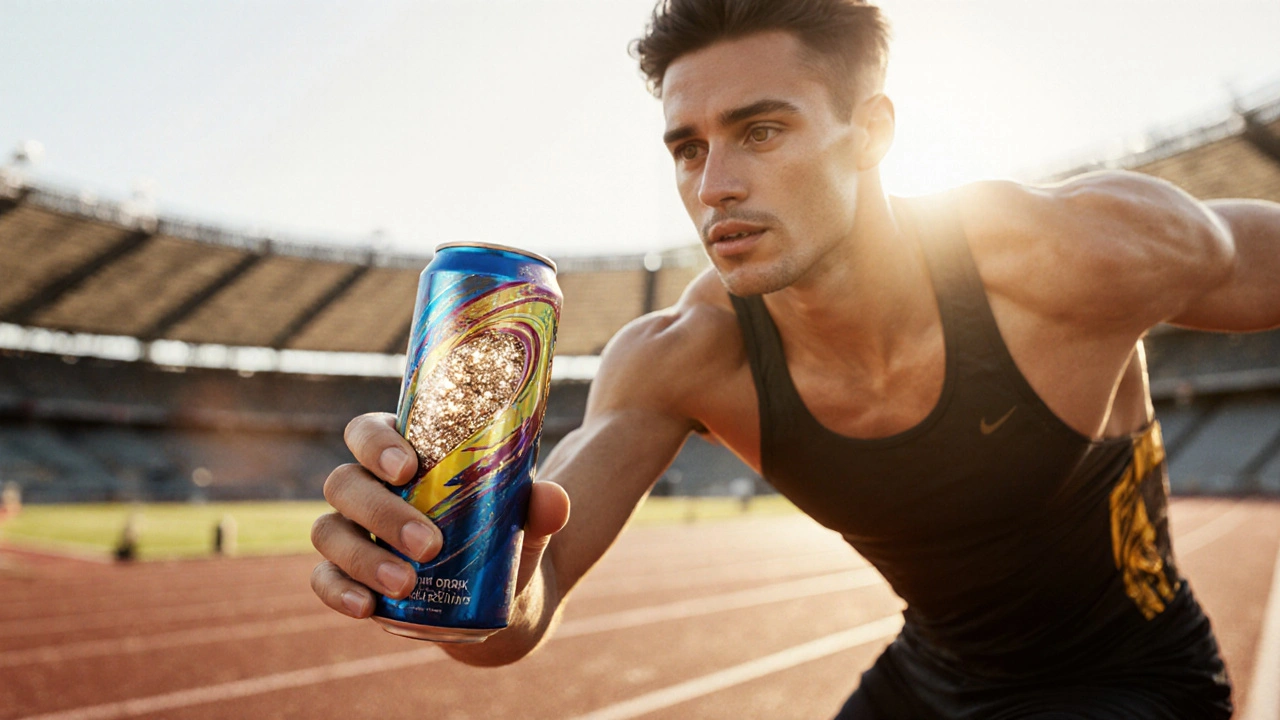Unlocking Performance: Energy, Focus, and Health
When talking about performance, the ability to sustain physical output, mental sharpness, and overall stamina during daily tasks or athletic challenges. Also known as physical performance, it matters to anyone from office workers pulling late‑night shifts to athletes chasing a new PR. Understanding what drives performance helps you choose the right drinks, foods, and habits to stay on top of your game.
Fuel Sources that Shape Performance
One of the biggest performance boosters is energy drinks, ready‑to‑drink formulas that combine caffeine, sugars or sweeteners, B‑vitamins, and sometimes amino acids to give a quick lift. They’re often marketed for fast‑acting alertness, but the real impact depends on the caffeine dose and other ingredients. For example, a typical 250 ml can packs about 80 mg of caffeine—roughly the same as a small cup of coffee—plus electrolytes that can help with hydration during workouts. Caffeine, a natural stimulant found in coffee, tea, and many energy drinks works by blocking adenosine receptors, which reduces the feeling of fatigue and sharpens focus. The dosage matters: 200 mg is enough for most adults to notice a boost without jittery side effects, while 400 mg pushes the upper safe limit.
These two entities create a clear link: Performance encompasses energy drinks, and energy drinks influence performance through caffeine. When you pick a drink, look for clear labeling of caffeine content, sugar levels, and any added stimulants like guarana. This helps you balance the quick boost with long‑term health goals. Beyond the beverage aisle, real‑world performance also hinges on how your body handles blood flow and oxygen delivery. Blood pressure, the force of blood against artery walls, directly impacts how efficiently nutrients reach muscles during exercise can be a hidden performance factor. High systolic numbers (>130 mmHg) may strain the heart, reducing endurance, while low readings (<90 mmHg) can cause dizziness, especially after a caffeine spike. Monitoring your numbers and staying hydrated—often aided by low‑calorie drinks—keeps the circulatory system on track.
Finally, athlete performance, the measurable outcomes of training, nutrition, and recovery for sport‑specific goals ties everything together. Whether you’re a weekend runner or a competitive bodybuilder, the mix of proper fueling (energy drinks or natural alternatives), controlled caffeine intake, and stable blood pressure forms the foundation for stronger, faster, and more consistent results. Performance requires smart nutrition choices, and the articles below break down each of these pieces in detail—from low‑calorie energy drinks that aid belly‑fat loss to safe strategies for calming a racing heart after a caffeine surge. Ready to dive deeper? Below you’ll find a curated set of articles that examine the fine line between a helpful boost and a health risk, offering practical tips you can apply today to power up your performance safely.
Explore the benefits, risks, and smart usage tips for athletes considering energy drinks, with clear guidance on caffeine, carbs, electrolytes, and alternatives.

